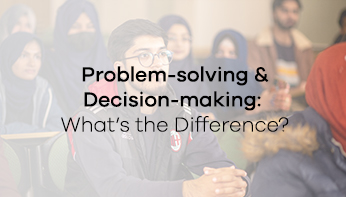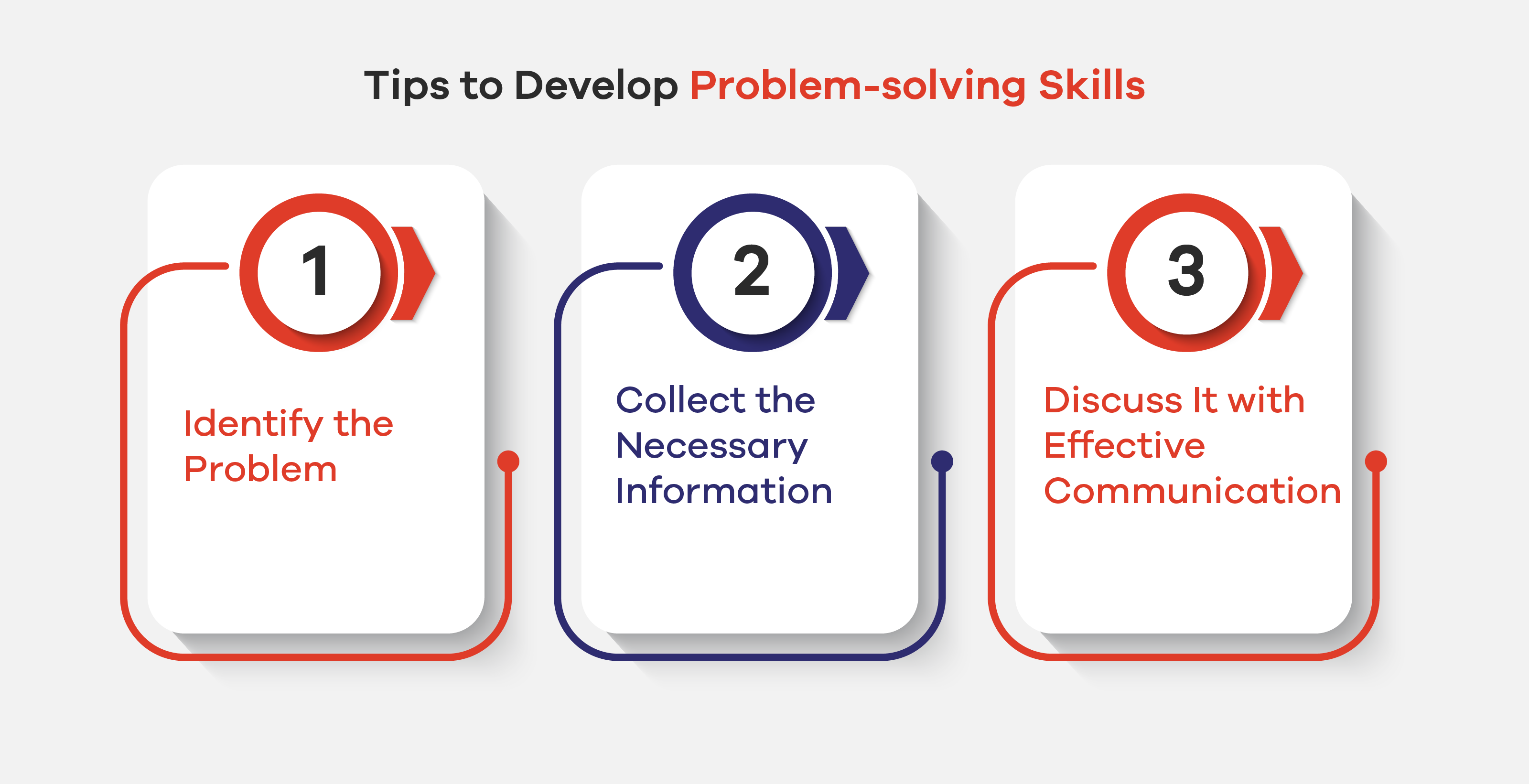Problem-solving and Decision-making: What’s the Difference?

Generally, we see problem-solving and decision-making as two similar skills. Well, these two skills can help you work more effectively and independently. Hence, knowing the difference between the two will help you figure out how to learn and develop these two skills. So, let’s explore the differences and how to develop these two skills while studying at university!
Problem-solving Vs. Decision-making: Know the Differences
Before we dive into the ways to develop both problem-solving and decision-making skills, let’s define the differences between the two.
Problem-solving
Problem-solving is an analytical method you can use to identify the most potential solutions to a specific situation. Simply put, it is a complex process and judgment calls. Eventually, the decision may have to be made on the way.
In brief, we can say that problem-solving involves:
- Identifying an issue
- Finding causes
- Asking questions
- Brainstorming solutions
- Gathering facts to make the solution more obvious and precise
Decision-making
Decision-making is all around the process of choosing a solution based on your judgment, situation, facts, knowledge, or information you have. The main goal here is to avoid potential difficulties. Furthermore, identifying opportunities is an important part of the decision-making process. Hence, making decisions is often a part of problem-solving.
Tips to Develop Problem-solving and Decision-making Skills
Without you realising it, developing problem-solving and decision-making skills during your university studies is essential for personal growth and professional success.
Here are some strategies to help you develop these soft skills!
Problem-solving

1. Identify the Problem
Start by recognising the problem you want to address. If you are working in a team, then discuss with your teammates to articulate the problem. Then, try considering which problem you must tackle first.
To determine the needs of the problem, you might ask these questions below:
- What factors are contributing to this problem?
- Who are the people involved with the problem?
- When is this problem occurring?
- Where is this problem taking place?
All the answers to those questions can help you clarify information related to the problem. Hence, the answers will help you and your teammates understand the problem as much as possible before moving forward with creating a solution.
2. Collect the Necessary Information
Make sure you collect the necessary information to get a better understanding of the problem itself.
3. Discuss It with Effective Communication
Effective communication is one of the practices you can do to master your problem-solving skills. Clearly express your decisions and rationale. Eventually, you must open a fair and transparent discussion with other team members to get the best solution.
Decision-making

1. Evaluate Multiple Options
With your teamwork skills, you must weigh multiple options and alternatives to consider their implications.
2. Mindset Awareness
Do not forget that your mindset and personal biases might influence the decision-making process. Hence, make sure you avoid this when making the right decision, especially if the decision should be for everyone’s best.
3. Understand the Strengths and Limitations
You must also understand all the strengths and limitations associated with decision-making approaches. To make things easier, you can consider using a SWOT analysis to identify the strengths, weaknesses, opportunities, and threats related to a problem. By understanding these important components, you can then come up with potential solutions.
4. Generate Solutions
Brainstorm potential solutions together with all your teammates.
5. Plan and Implement
Organize and execute the solution you and your teammates have chosen.
Overall, you must remember that practice and continuous learning are essential for developing both problem-solving and decision-making skills. For this, you must engage in real-world scenarios and collaborate with peers. Ultimately, you can seek feedback from your friends and teammates to improve your problem-solving and decision-making abilities.
The Importance of Excellent Problem-solving and Decision-making Skills
Indeed, problem-solving and decision-making skills are both important. The main reason is because they can help you navigate a variety of situations that might come up during your study. Furthermore, these skills complement one another and can resolve many of the same issues. In fact, both these skills will apply to all careers and industries. By having these skills, you can show that you can think through various scenarios and make perfect decisions that are good for the company.
How can you apply these skills at university?
Surprisingly, you may already have gained decision making and problem-solving skills while studying at university.
Here are some examples of situations in which you can apply these skills at university!
- Dissertation
In completing your dissertation or thesis, you will have to do research, analyse a specific issue, and provide recommendations.
- Group Projects
In any group project, you must overcome some challenges like change of circumstances, technical problems, and others.
- Organising Events
When organising events, you will have to decide on date, venue, marketing, solving logistical issues, and more.
Summing Up
No doubt, both problem-solving and decision-making skills can help you work more effectively and independently. Hence, by learning and applying these skills during your study, you can prepare yourself for your future career. At CUST (Capital University of Science & Technology), we provide an ethical and inclusive environment to help you develop intellectual, professional, social, and personal skills.



